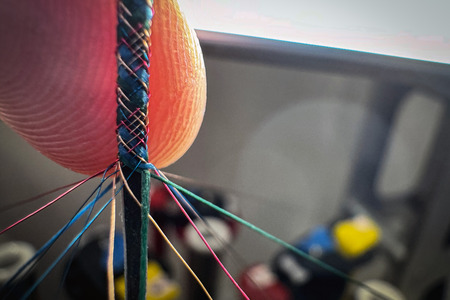
Nike reveals new sustainability targets
YarnsandFibers News Bureau 2021-04-15 09:01:34 – USASporting company Nike has plans to further its environmental objectives since launching its latest sneaker refurbishment scheme. The corporation is actively investigating innovative growth strategies to prolong the life of its goods, and it has also entered the Science-Based Targets movement, which encourages businesses to take the lead in moving toward a zero-carbon economy.
Nike has set a goal of reducing greenhouse gas emissions by 65% in owned and operated spaces and 30% through the extended supply chain by 2030. Nike plans to reduce 0.5 million tonnes of greenhouse gas emissions over the next five years by increasing the use of environmentally preferable goods to 50% of its main materials, decarbonizing the supply chain, and using clean energy and fleet electrification.
Nike’s chief sustainability officer, Noel Kinder said that they'll build on the lessons gained along the way — both defeats and breakthroughs — when they press forward. In the last five years, for example, they have fallen short of their FY20 emissions emission targets.
He added that they faced problems with shifts to more complex materials and product designs, inbound airfreight, and improvements to the electric grid in some of their key manufacturing areas, despite minimizing material waste and expanding renewable energy. They lost chances to concentrate on their largest carbon "hotspots" by focusing on composite measures like average product carbon footprint.
Sustainable fabrics, renewable energy, and energy conservation are now the three core pillars of Nike's sustainability focus. The firm is speeding up research and development in the area of sustainable materials, as well as looking for ways to put low-carbon solutions to market on a large scale.
Furthermore, Nike is delving further into their expanded value chain, which accounts for the vast majority of their greenhouse gas emissions, in order to slow the growth of emissions — even though their market expands. To further reduce their carbon emissions, the organization is considering investing in solar power and renewable fuels.
Nike has now set accountability benchmarks, quarterly scorecards, and is also tying executive pay to their results. Kinder became Nike's chief sustainability officer in 2018, and the brand has gradually become more competitive since then by creating sustainable partnerships and changing the supply chain.
Market Intelligence
Ask for free sample Report

experience
Customer Base
dedicated team
Countries Served Worldwide









